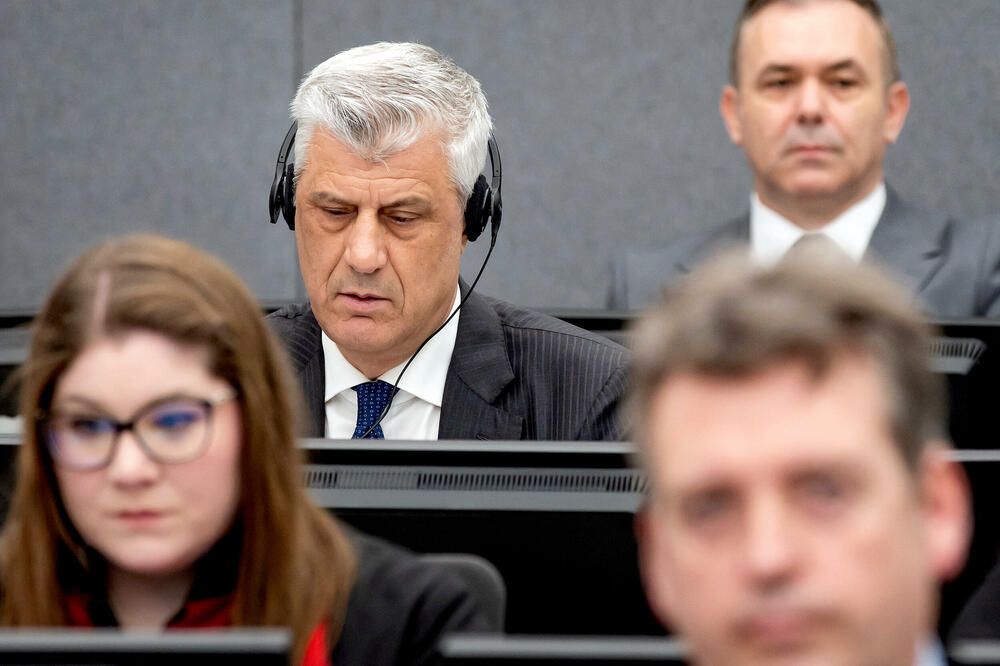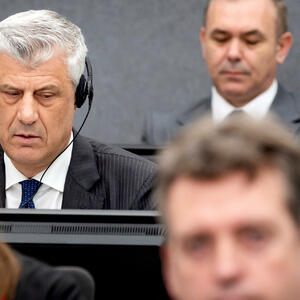The former American envoy to Kosovo, Sean Burns, said today at the Hague trial to KLA war leader Hashim Thaci that the USA "predicted" in the summer of 1999 that the Serbs would be forced to leave Kosovo when NATO entered the province.
Thaci was accused of crimes against humanity in Kosovo and Albania, 1998-99, along with Kadri Veselji, Redžep Seljimi and Jakup Krasnići. All of them were members of the KLA Main Staff at the time.
Burns, as a State Department official, then headed the Kosovo Diplomatic Observer Mission (KDOM).
During the cross-examination of witnesses, Thaci's defense attorney Luka Misetic played a video in the courtroom in which, just before the Alliance's entry into Kosovo in June 1999, State Department spokesman Ken Bacon says that "Kosovo will not be a happy place for Serbs when NATO enters."
Bacon expressed his belief that "Serbs do not want to stay there, but to return to Serbia".
"We don't know the size of the Serbian minority, probably around 100.000 or a little more, but when the Kosovo Albanians return, our assumption is that many Serbs will return to Serbia," said the US representative to reporters.
The reporter's assessment that it sounds like the US is "encouraging the Serbs living in Kosovo to leave" was also heard on the recording, which Bacon denied, claiming that he was "just predicting" what would happen.
Commenting on that statement, Burns confirmed in the courtroom that "unfortunately" he also expected in advance that the Serbs would have to leave. He pointed to the long-term violence that Slobodan Milošević's government used against Albanians as the cause.
"We predicted that the Albanians would retaliate when NATO came in," Burns said, suggesting that this was a consequence of "Milošević's previous goal of expelling a large number of Albanians" in order to assert dominance in Kosovo.
An American diplomat previously told prosecutors that Serbs were subjected to "revenge-motivated violence" after the return of the Albanians and NATO's entry into Kosovo.
About the violence against civilians in 1998-99, KLA leaders "gave false information" to American observers, Burns said in an earlier statement to the prosecution.
Lawyer Mišetić tried to refute this by citing the example of the murder of six young Serbs in the Panda cafe in Peja in December 1998.
Emphasizing that the KLA denied being responsible from the beginning, Thaci's lawyer played the statement of Serbian President Aleksandar Vučić in the courtroom that "there is no evidence that Albanian terrorists" committed the crime - "on the contrary".
After confirming that the US initially blamed the KLA for the crime in Panda, Burns said he was "surprised and stunned" by Vučić's statement.
The witness then accepted Mišetić's claim that the crime was committed by the "Serbian security service" with the intention of blaming the KLA.
Thaci's defense attorney proved, during the interrogation, that the KLA Main Staff did not have command over the units in the field, and Burns partially confirmed this.
Lawyer Mišetić cited a State Department document from the spring of 1999, according to which "there is no political structure, nor effective control and command over the KLA" in Kosovo.
Burns agreed with that, but a little later he said that even the "irregular", village units were subordinated to the commanders of the "operational zones" of the KLA, who, according to the prosecutors, were members of the Main Staff.
During the negotiations in Rambouillet, that headquarters, according to the witness, had "tenuous control" over the regional elders, because they opposed the peace agreement advocated by Thaci.
Burns, who is the 53rd witness since the trial began on April 3 last year, continues to answer questions from the defense attorneys of the four defendants.
Bonus video:





